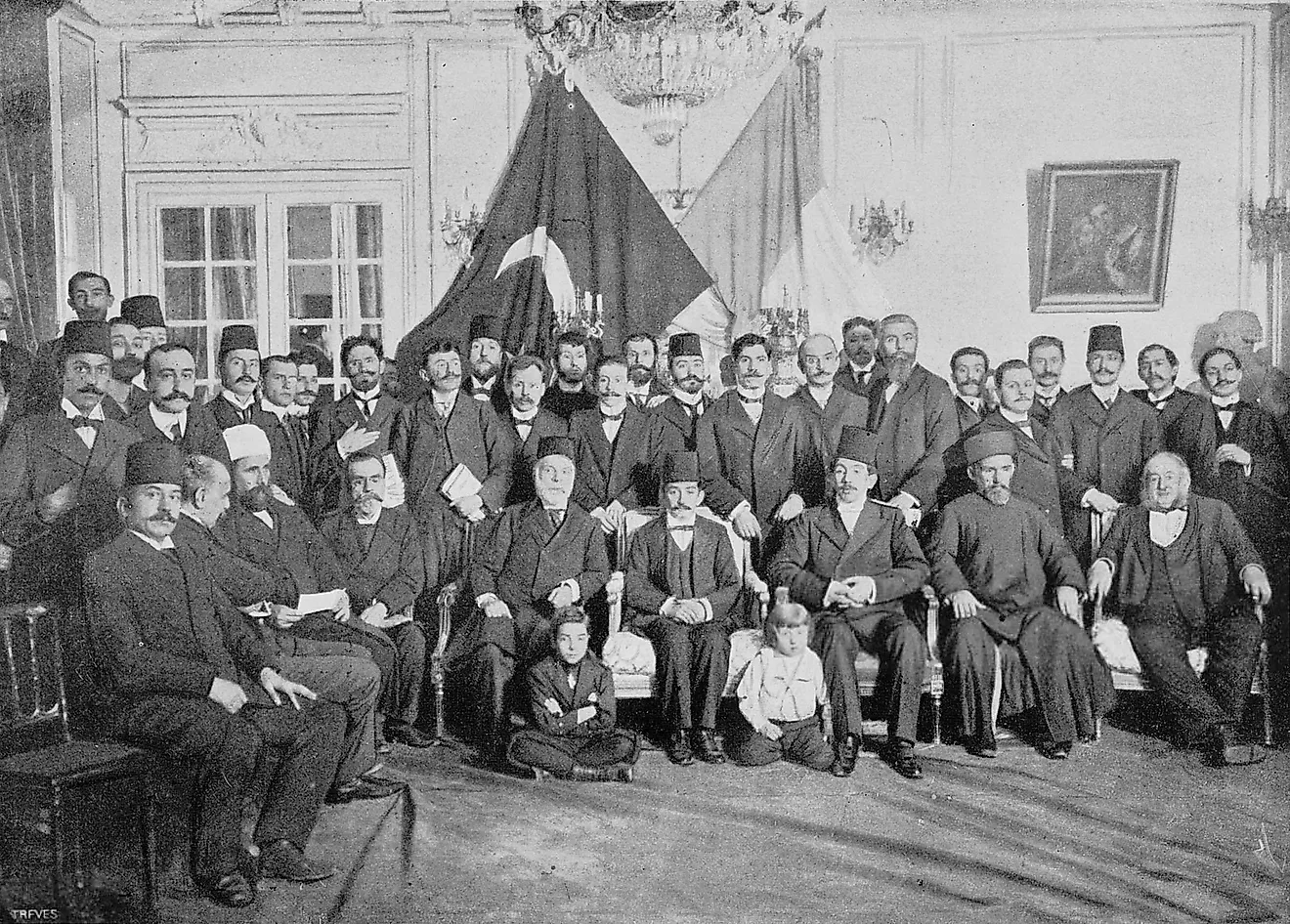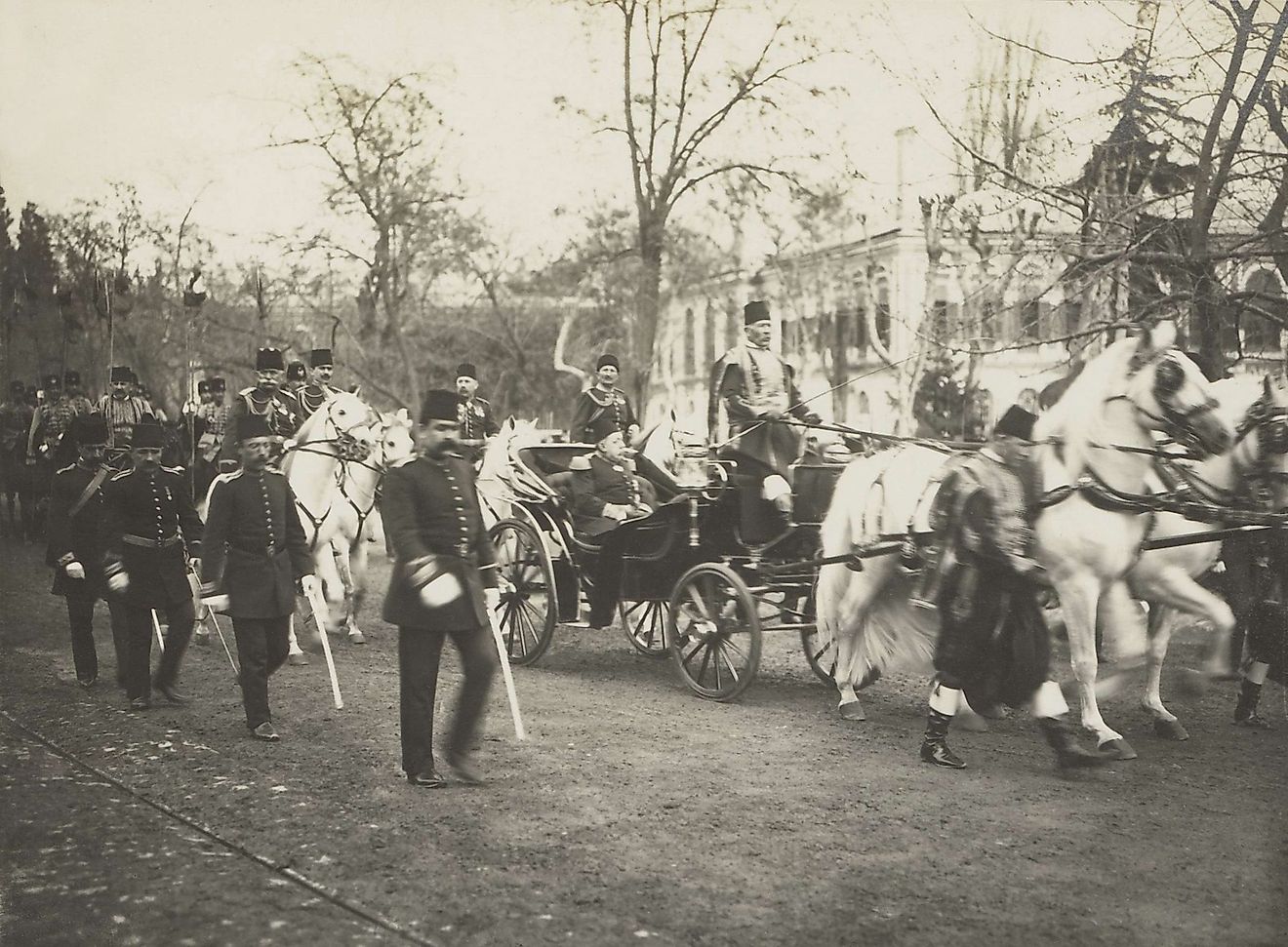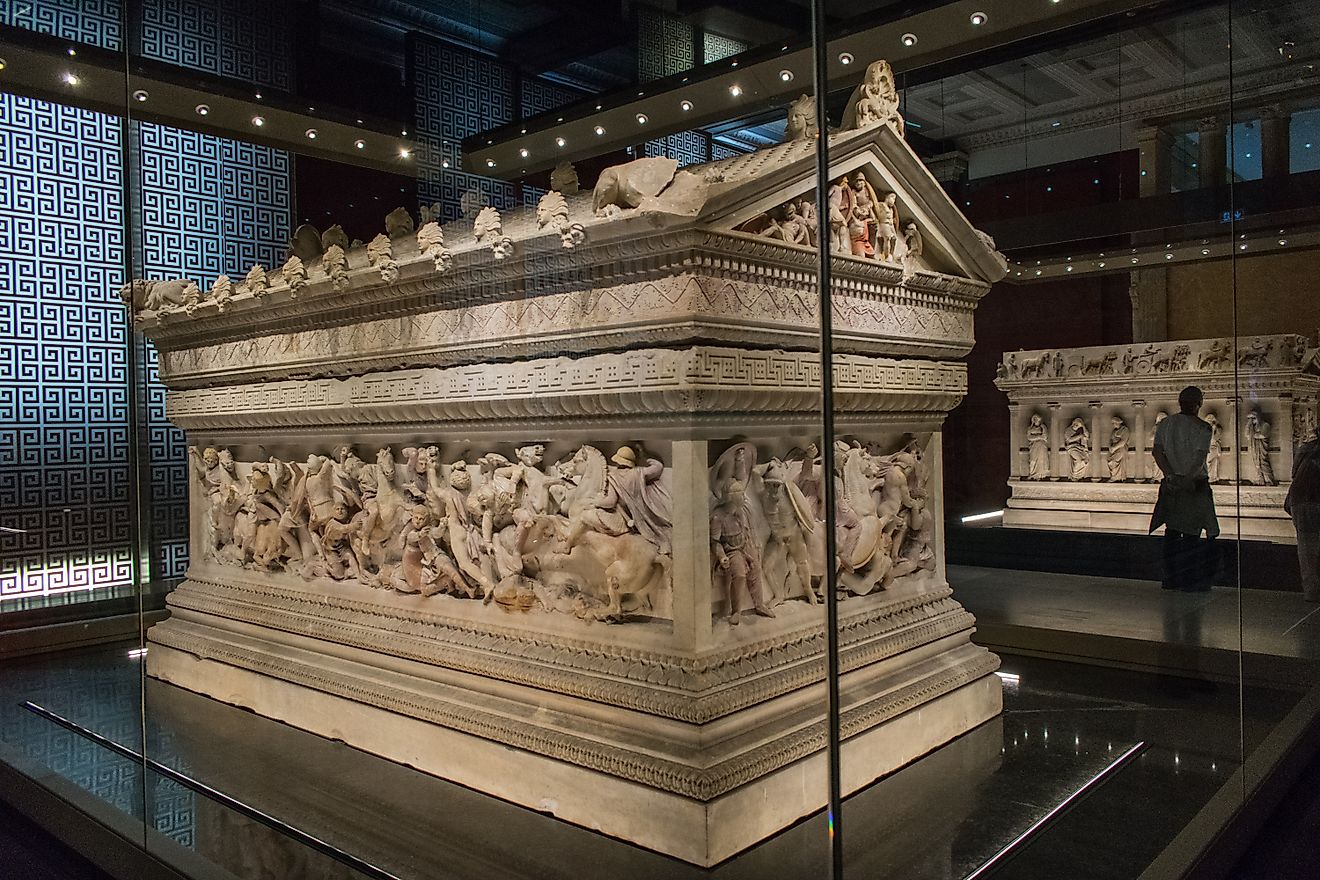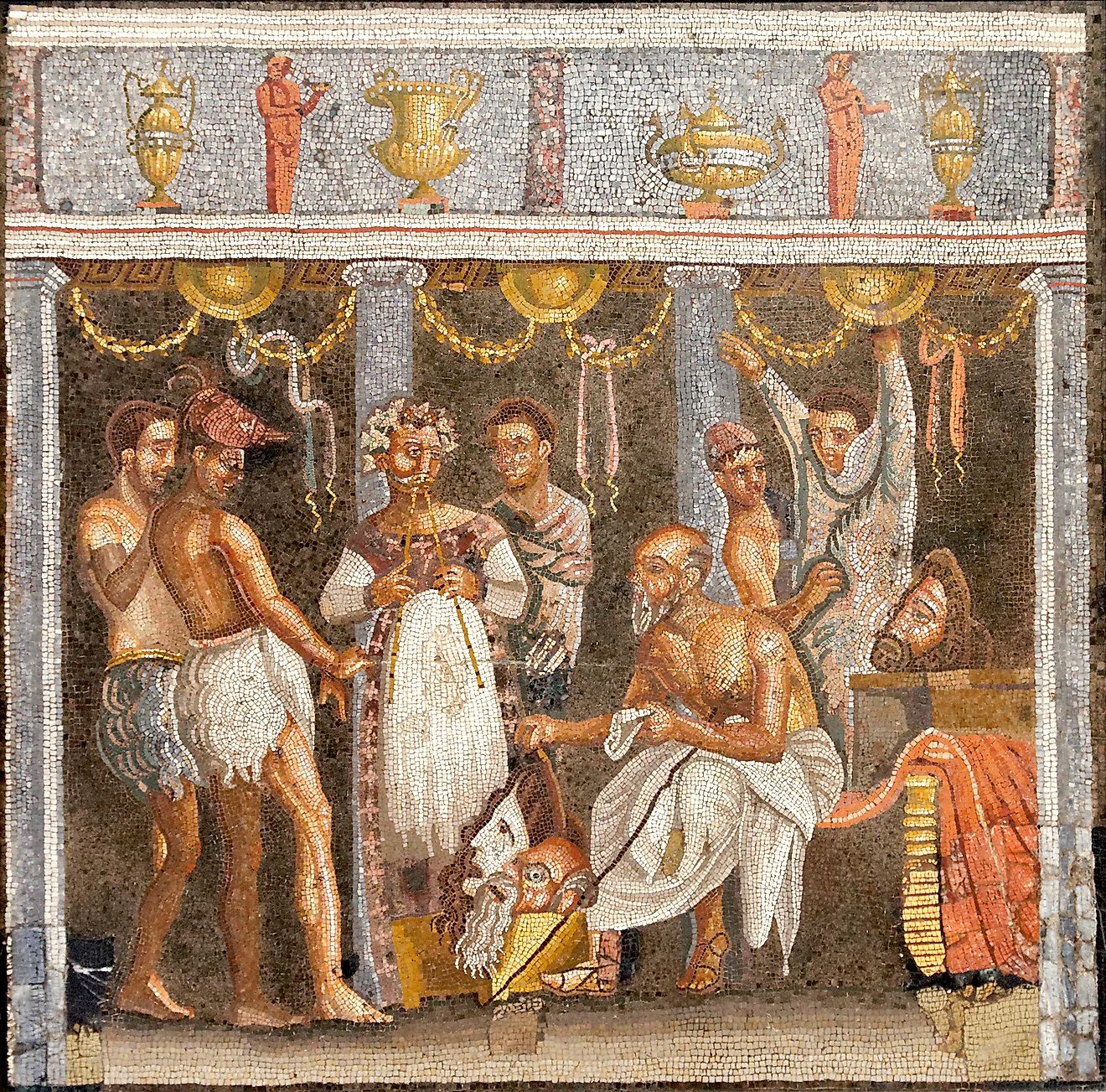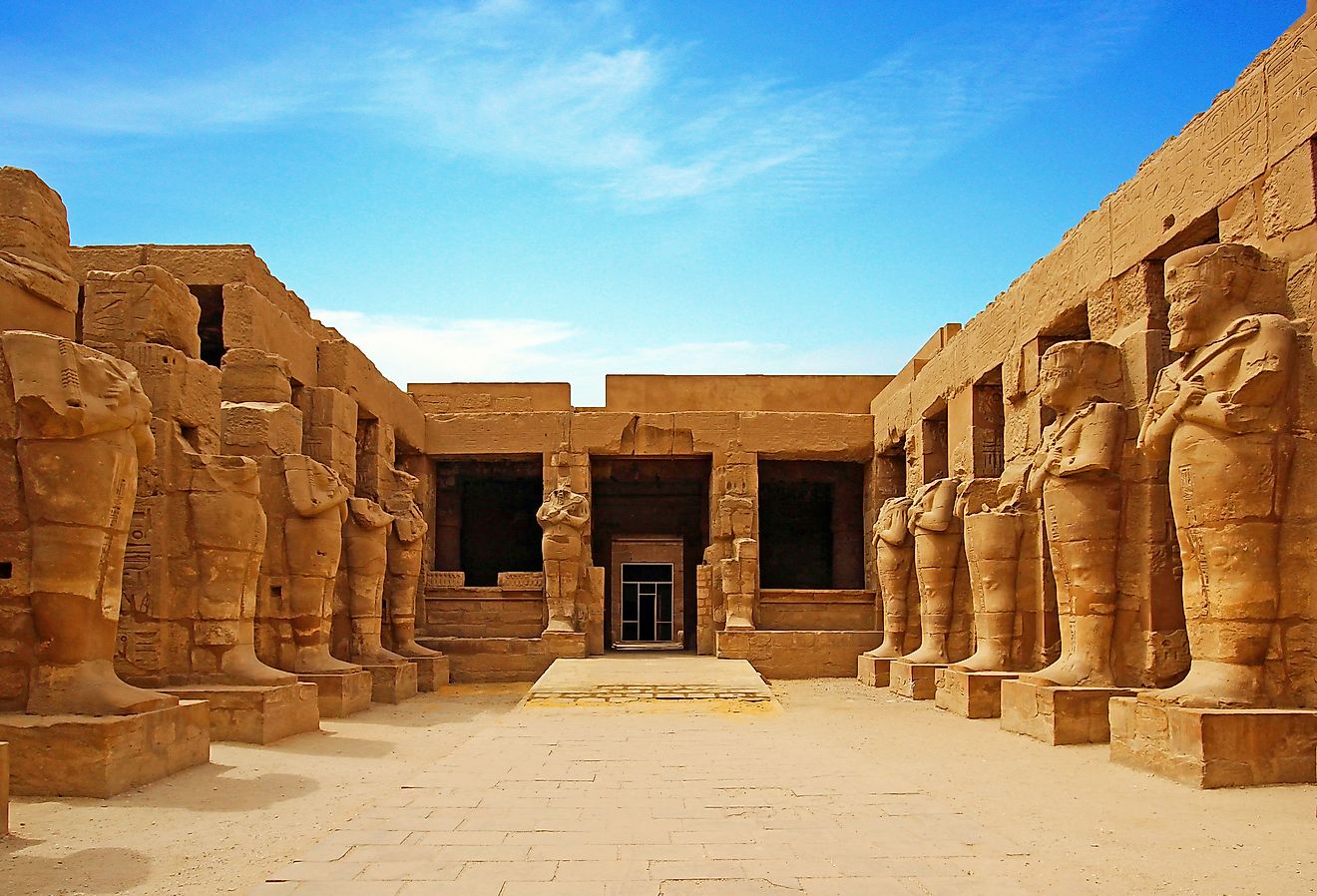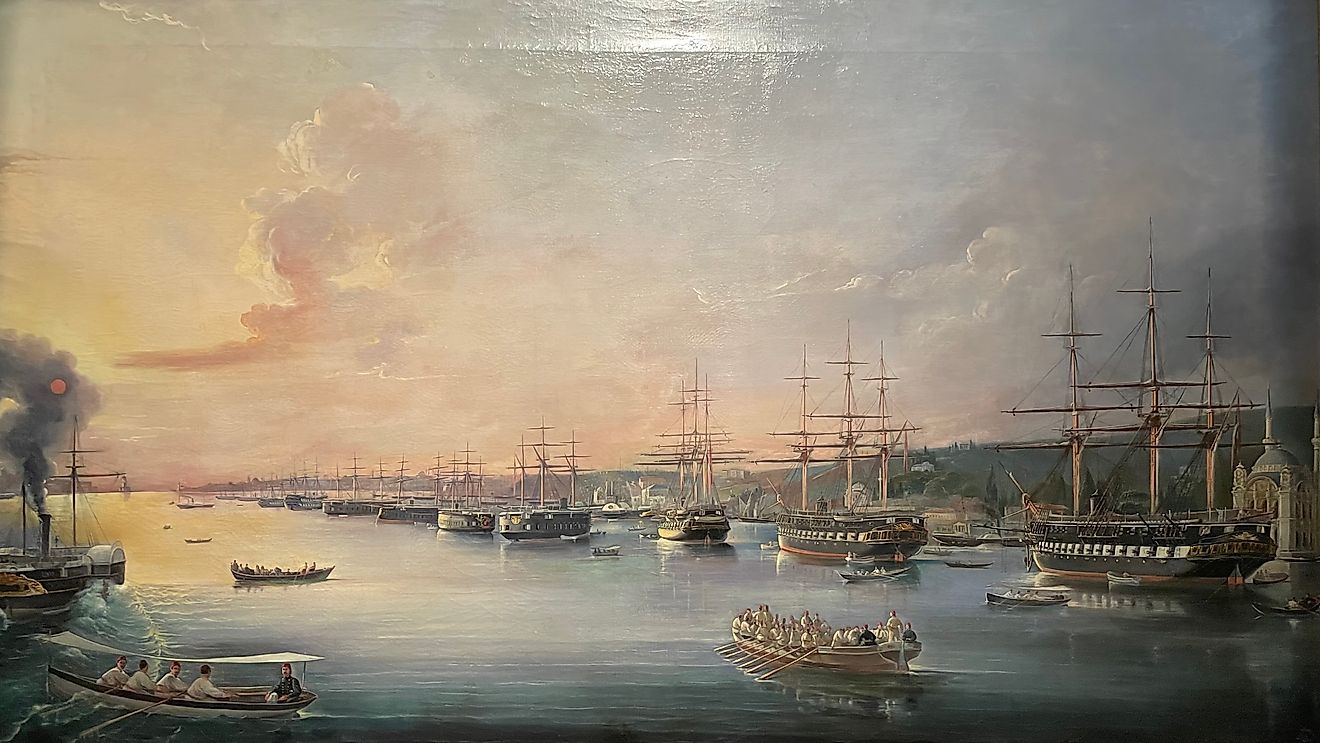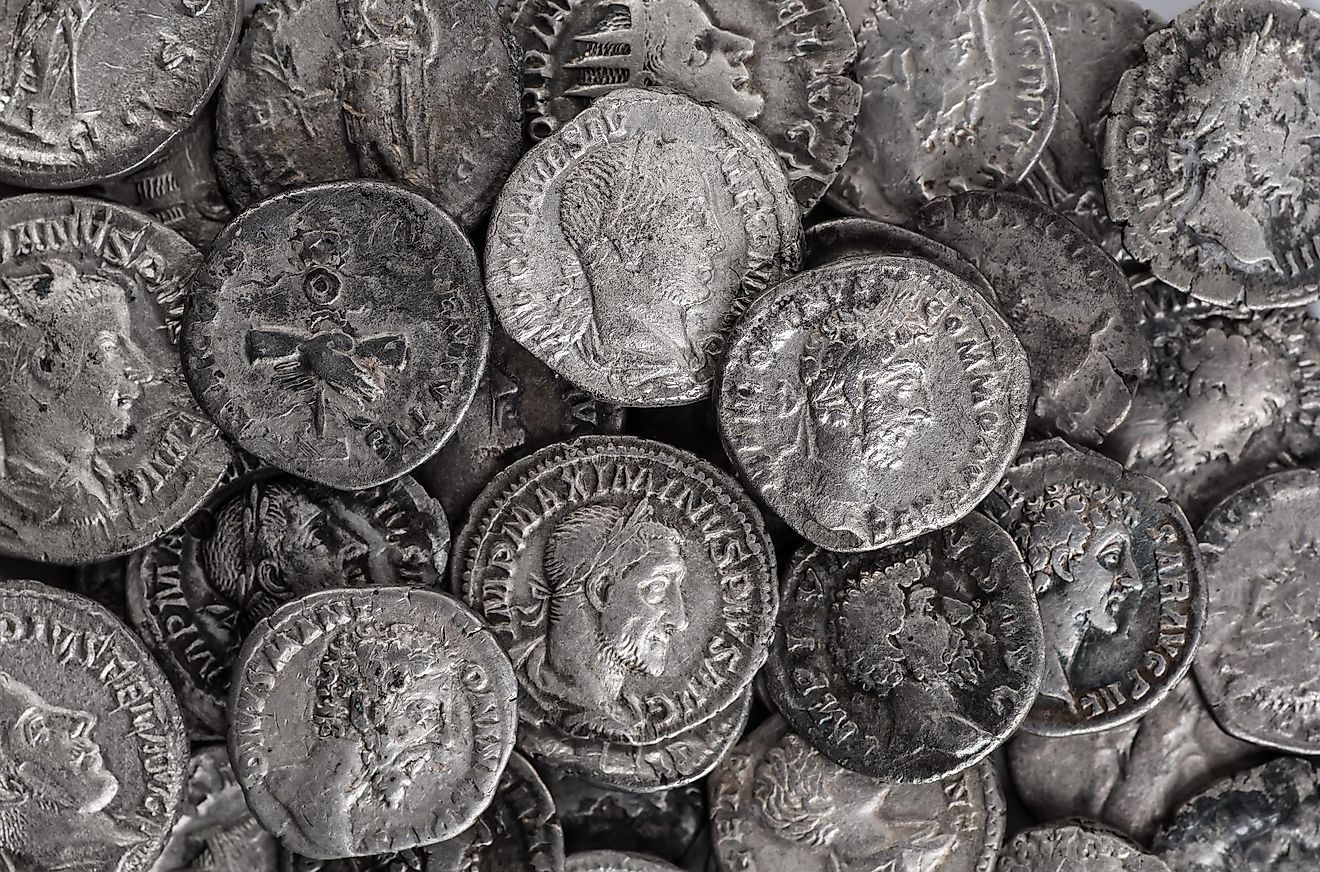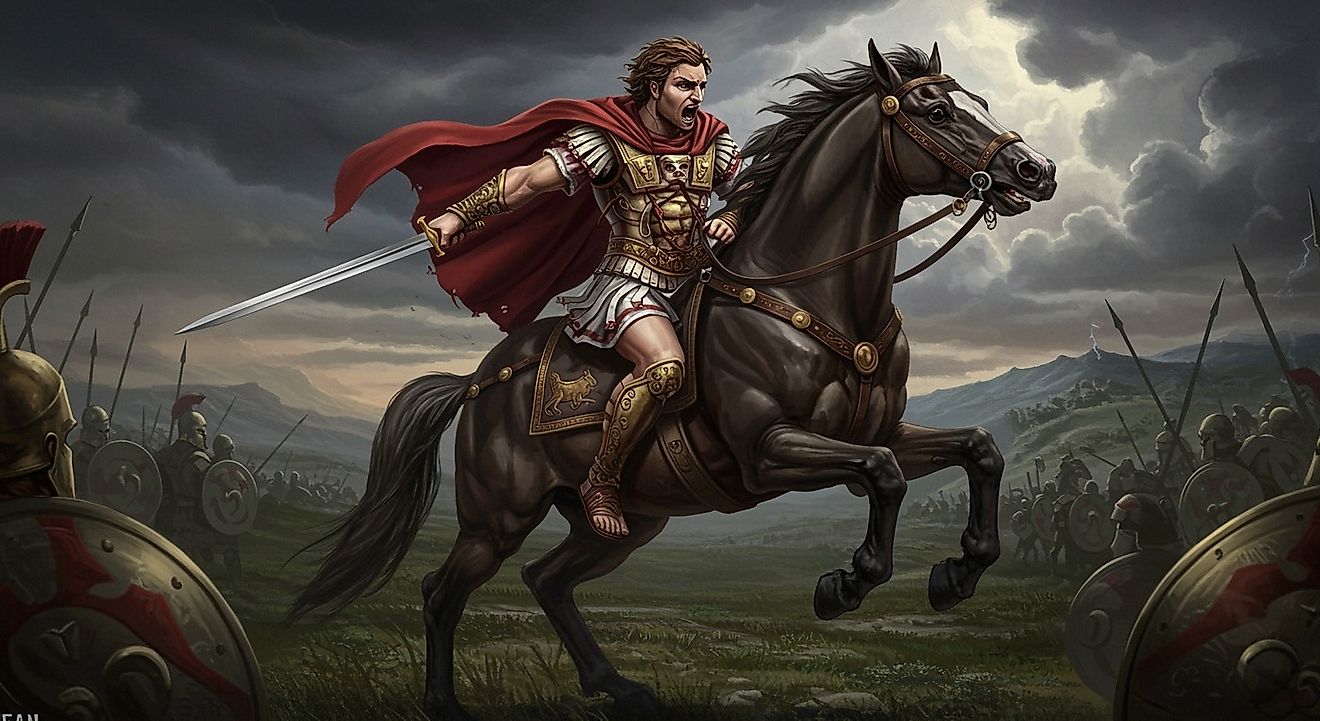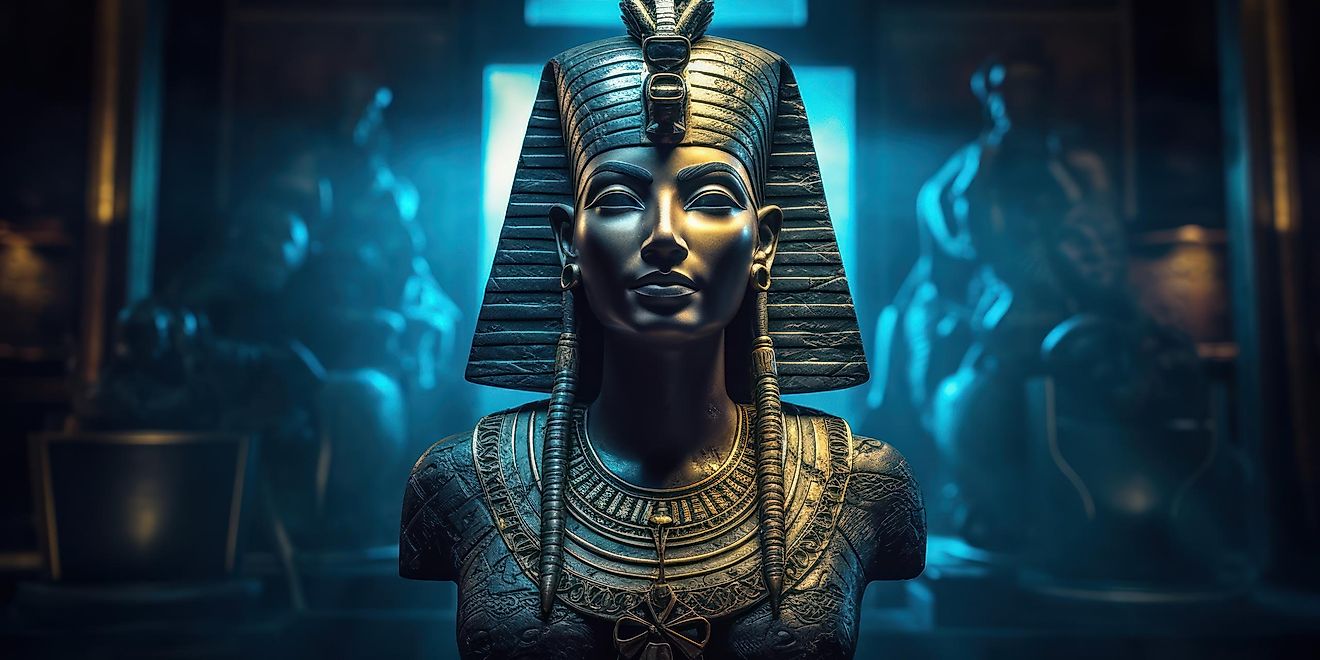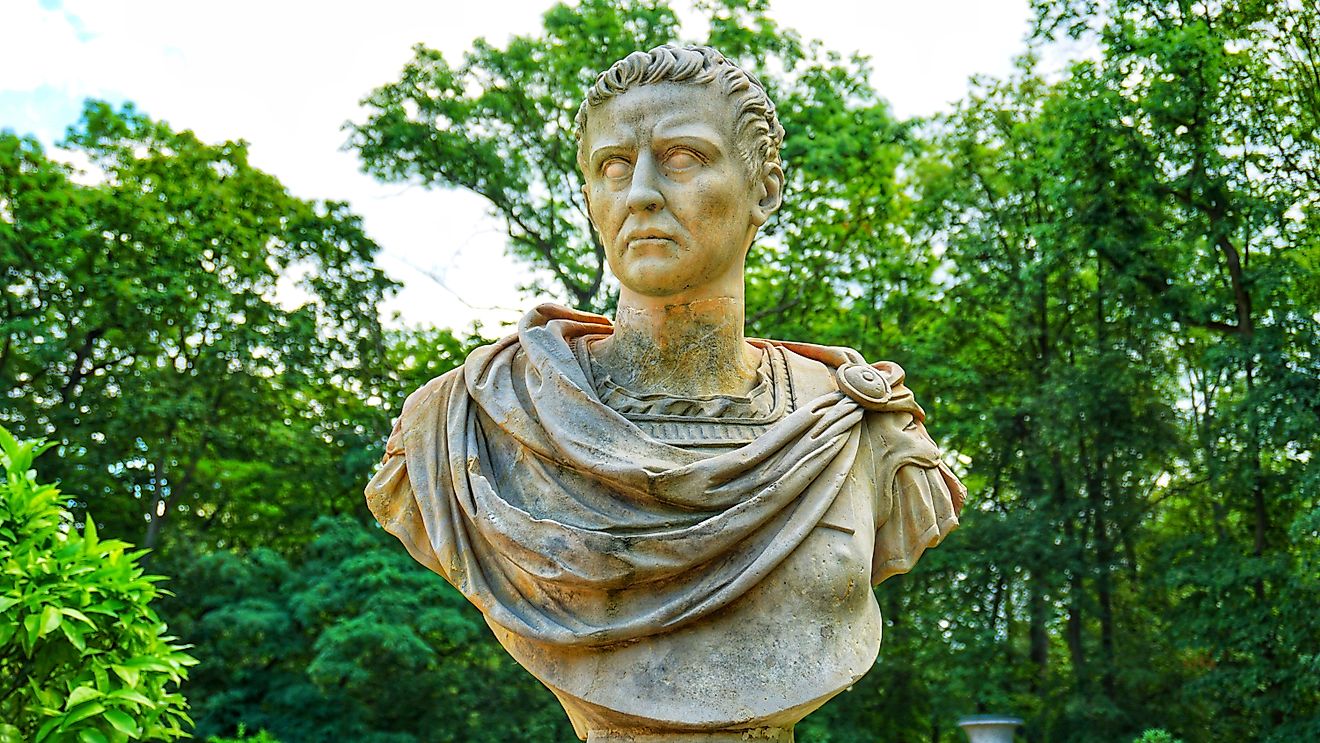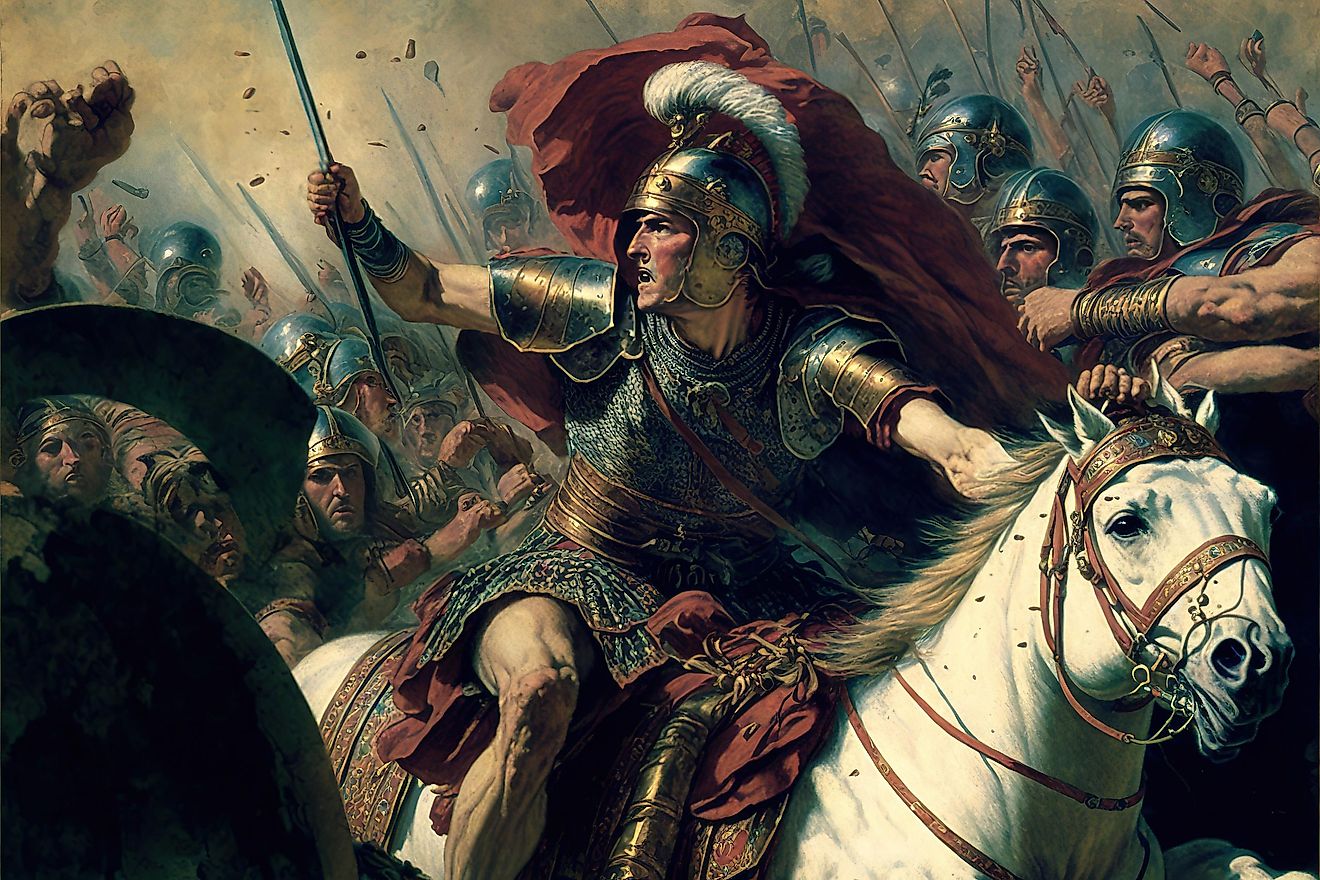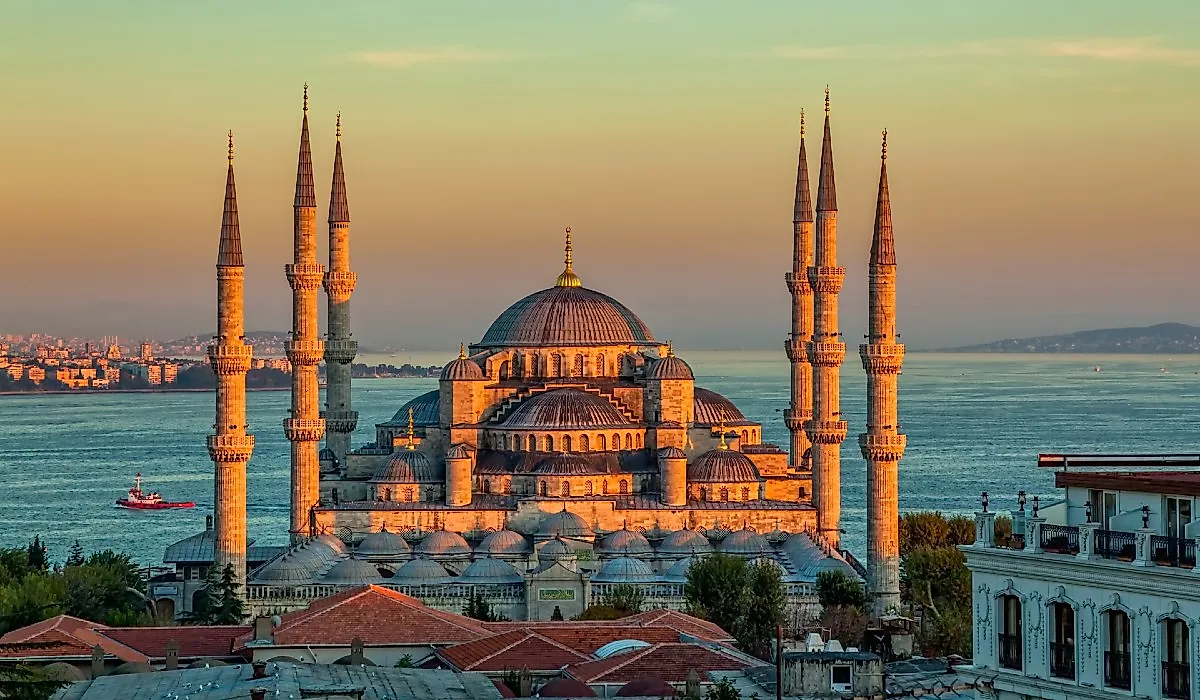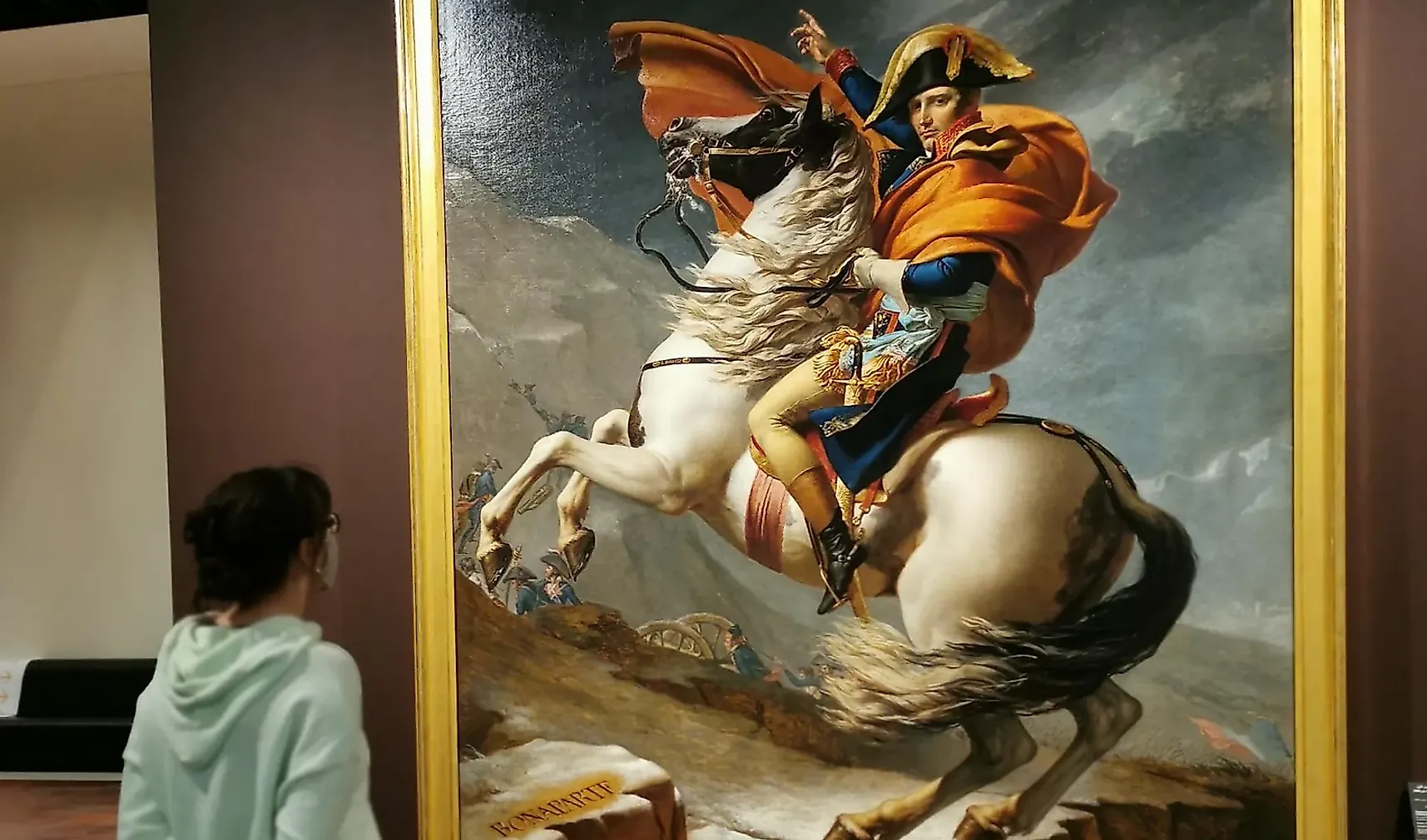
10 Facts About the Napoleonic Wars
A turbulent time in history, the Napoleonic Wars were a 12-year period in which military alliances of various European kingdoms waged war against France. The instability of the French Revolution motivated these kingdoms to dominate the French people over the fear of revolt spreading elsewhere. In a desire to defend France and indulge himself in glory, Napoleon Bonaparte played a central part in the Napoleonic Wars, rightfully named after the man himself. These 13 key moments changed the history of Europe, and the effects can still be felt today.
1. The Napoleonic Wars Began on May 18, 1803
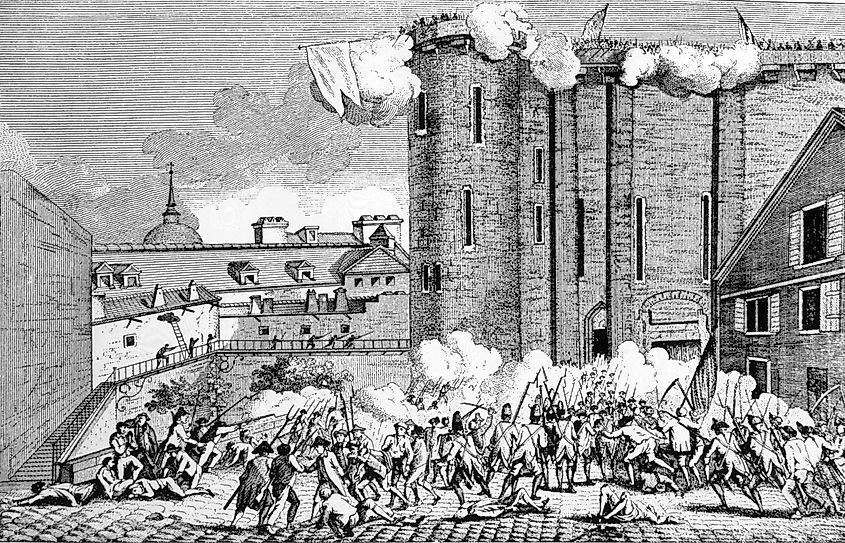
Despite Napoleon’s rapid rise to power between 1794 and 1799, the Napoleonic Wars began with Britain's declaration of war on France in 1803, effectively ending the Treaty of Amiens. This event became known as the War of the Third Coalition and is often regarded as the first Napoleonic War. This event was shortly followed by the French invading Hanover on May 26th. Moreover, the United States had just agreed to the Louisiana Purchase that same year, effectively funding Napoleon's campaign.
2. Napoleon Preemptively Planned to Attack Britain
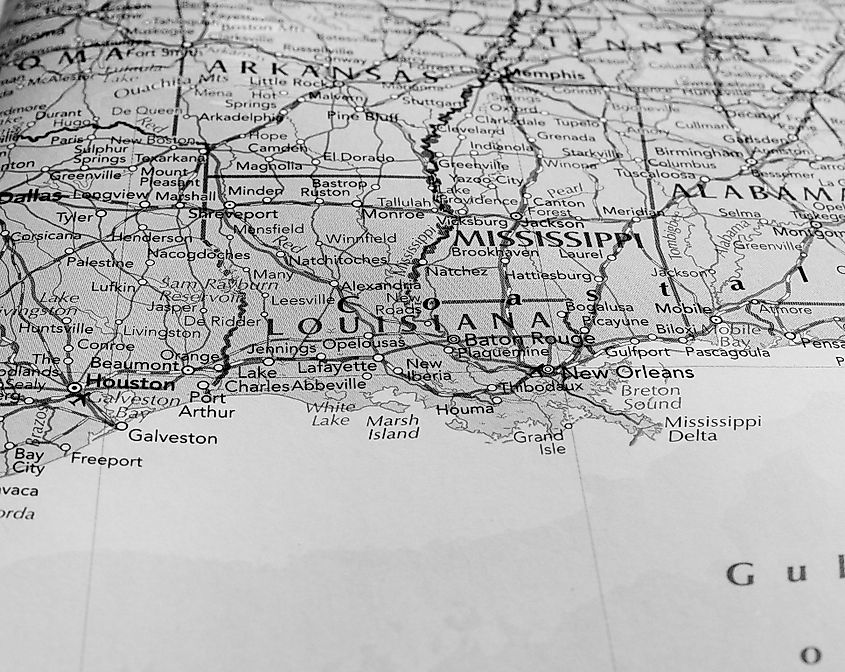
France was in a vulnerable position following the French Revolution, which had left the country and its territories exposed to opportunistic powers. Historically, the relationship between France and Britain had always been strained. In fact, just days before Britain declared war, Napoleon had received sixty-eight million Francs for the sale of the Louisiana Purchase in preparation for war. This escalation was well timed and prepared for, leaving Britain wondering if their opponents were more organized than they originally estimated.
3. Napoleon Had a Difficult Childhood
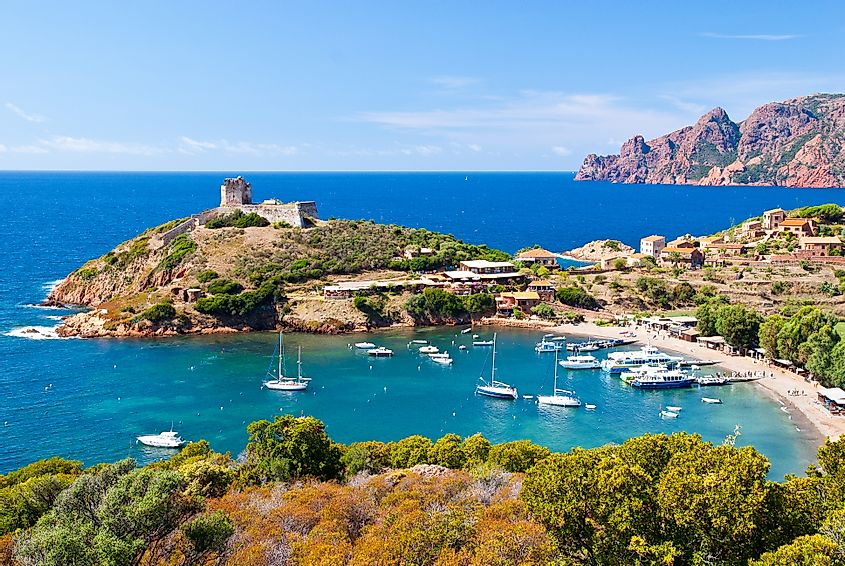
Napoleon was born into a family of minor Italian nobility in Corisca, an island in the Mediterranean Sea and a recently conquered territory of France. His first languages were Italian and Corsican, and he did not learn French until he was sent to military school in France. As a child, he was subjected to severe bullying in school because of his Corsican accent. At the age of 15, Napoleon was accepted into the prestigious and expensive L'École Militaire in Paris, but his father passed away unexpectantly, leaving his family faced with financial difficulty. The young Napoleon was forced to complete the military program in one year instead of two, ranking 42nd in a class of 58.
4. Napoleon Used Propaganda
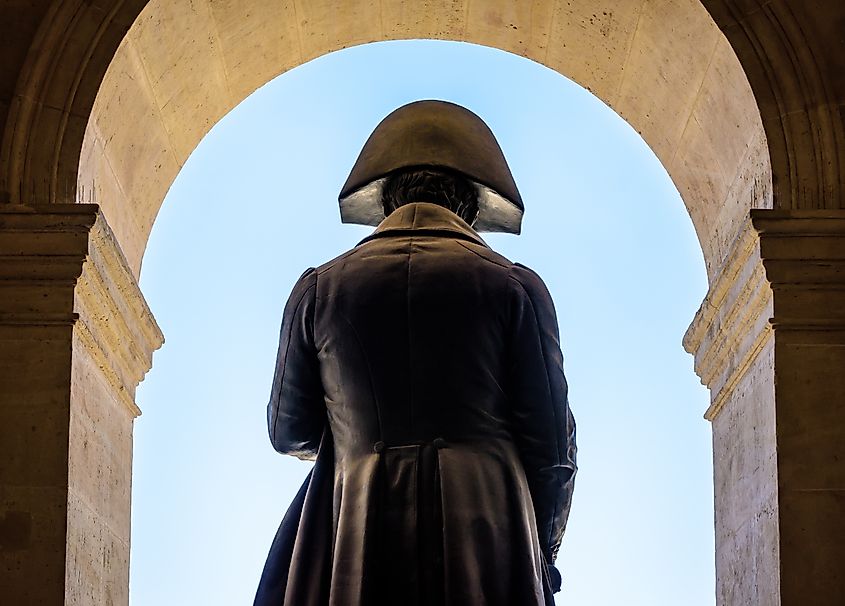
Although newspapers were still a fairly new invention and literacy was not as common in 19th-century France, Napoleon utilized propaganda in all its forms. He used theater, arts, bulletins, and pamphlets in favor of his own self-promotion. Furthermore, Napoleon’s mingling with upper-class celebrities provided him with the popular reputation that he needed to gain the support of the public. Napoleon realized that war is more than strategy and strength: it is the ability to command morale and reputation.
5. Poor Weather Delayed the Battle of Waterloo
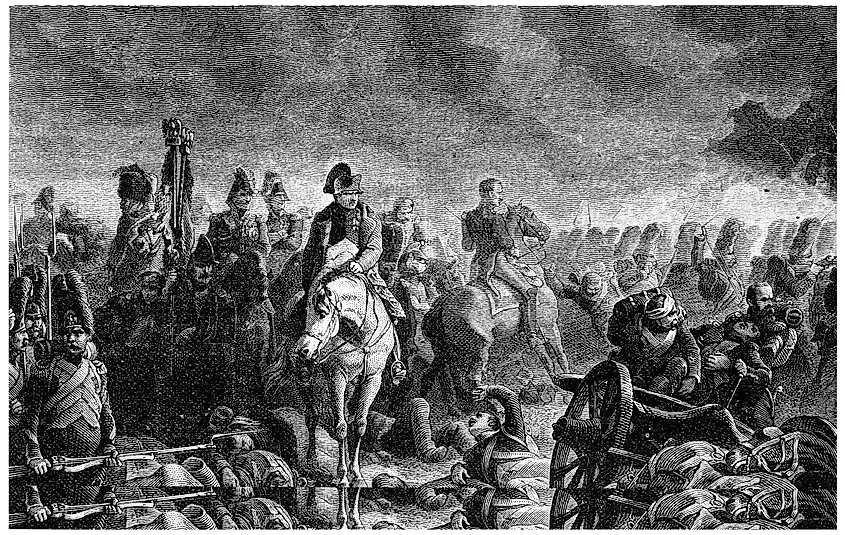
Napoleon's defeat at the Battle of Waterloo officially ended the Napoleonic Wars in 1815. The war pitted Napoleon's army against a coalition between Britain and Prussia and resulted in his final exile to Saint Helena, an island and British territory in the South Atlantic Ocean. The curious thing, is that the battle could have played out very differently, simply because of the weather. The Battle of Waterloo was close, and 47,000 soldiers lost their lives. Heavy rains the day before gave Britain and Prussia the time to regroup and present a more united front. Some scholars attribute the loss to Napoleon’s arrogance after the fact because he continued with the attack despite the obvious difficulties the weather had created.
6. Moscow Intentionally Burned Itself Down
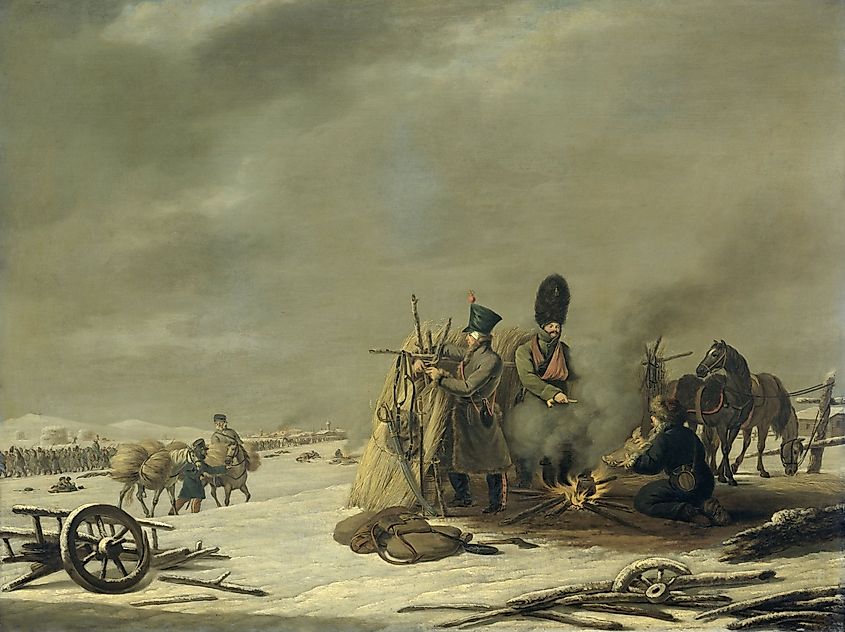
In 1812, the Tsar of Russia, Alexander II, rivaled Napoleon with strategy. By employing a tactic of endless retreat, Russia drained French supplies while French forces attempted to invade. When Napoleon entered Moscow in 1812, the city had been lit on fire as a means of attrition. Shortly after, Napoleon was forced to retreat through a cold winter frontier, which proved deadly to the troops walking on foot. Staying in Moscow was not an option due to Russian forces surrounding the city and cutting off supplies and reinforcements.
7. Russia Occupied Paris
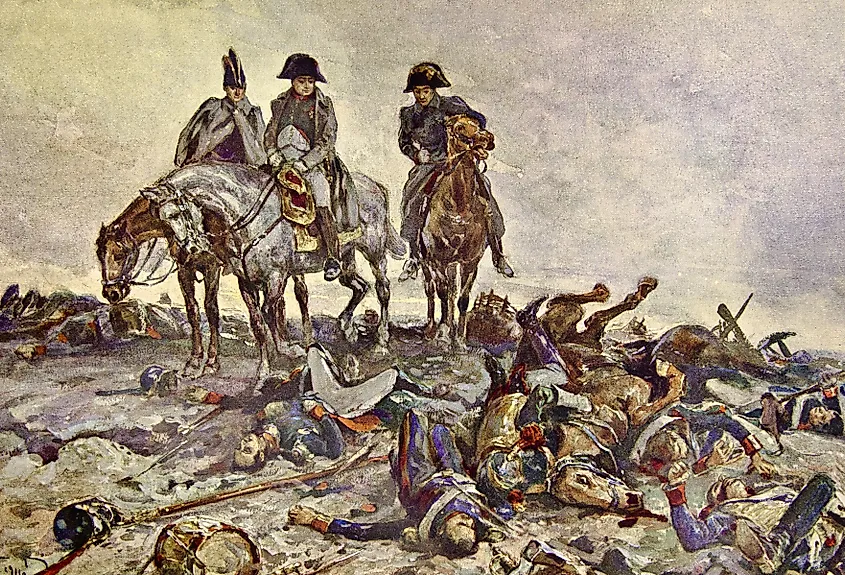
In 1814, a coalition of empires between Russia, Austria, and Prussia stood against France on the outskirts of Paris. Napoleon had already fled Russia after his defeat in Moscow, and Russia was looking for revenge. 400,000 troops breached the French lines, which consisted of war-weary soldiers. In an attempt to demolish Napoleon’s supporter base, the Coalition occupied Paris and offered generous terms to the French nation despite their desire for revenge.
8. Russia and France Had Actually Signed a Peace Treaty in 1807
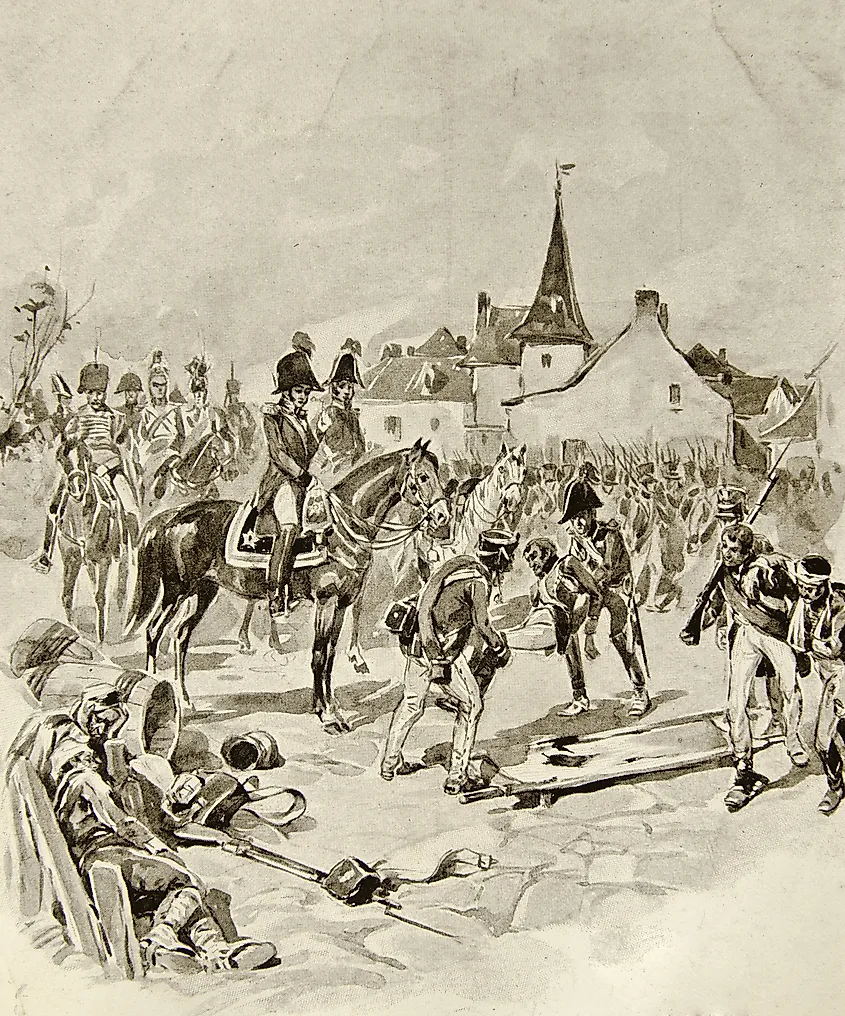
The Treaty of Tilsit occurred after Napoleon’s victory in Russia and was signed on a raft in the Neman river. Tsar Alexander II was convinced by Napoleon to enter into an unofficial alliance with France in order to upset the Ottoman Empire. In return, France pledged to continue working in opposition to British interests. Furthermore, Napoleon also gained back the Ionian Islands and Kotor, which the Tsar’s forces had managed to occupy. This agreement lasted almost two years before Russia set itself against Napoleon, once again.
9. Napoleon was Exiled Twice
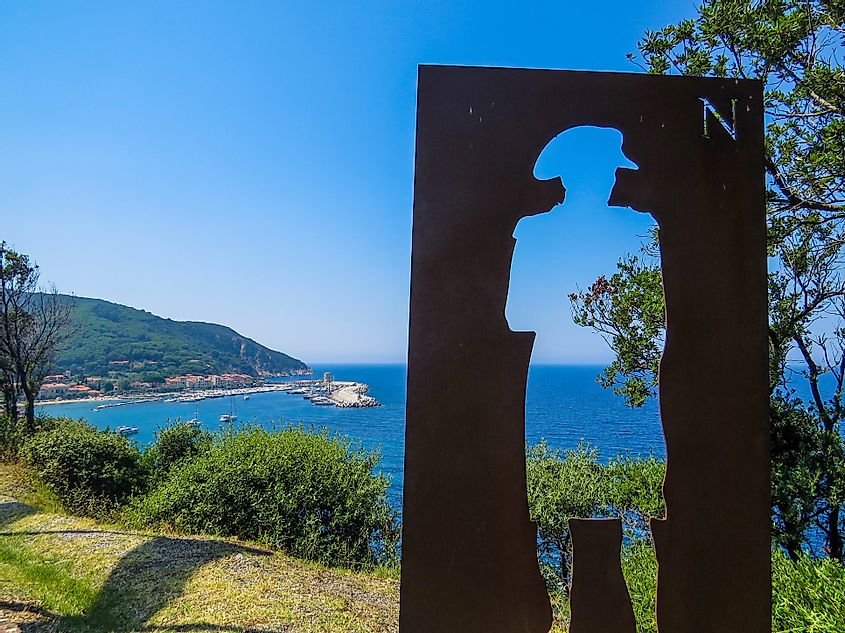
After the battle of Paris in 1814 and his subsequent loss to foreign forces, Napoleon did lose the support of the French people. He was forced to abdicate his throne and was exiled to Elba. Notably, his wife and son preferred the comforts of Vienna and did not go with him. Napoleon managed to make his way back to France and regain his position as Emperor for 100 days until June 1815. In October, he was once again exiled to Saint Helena.
10. The Holy Roman Empire was Abolished
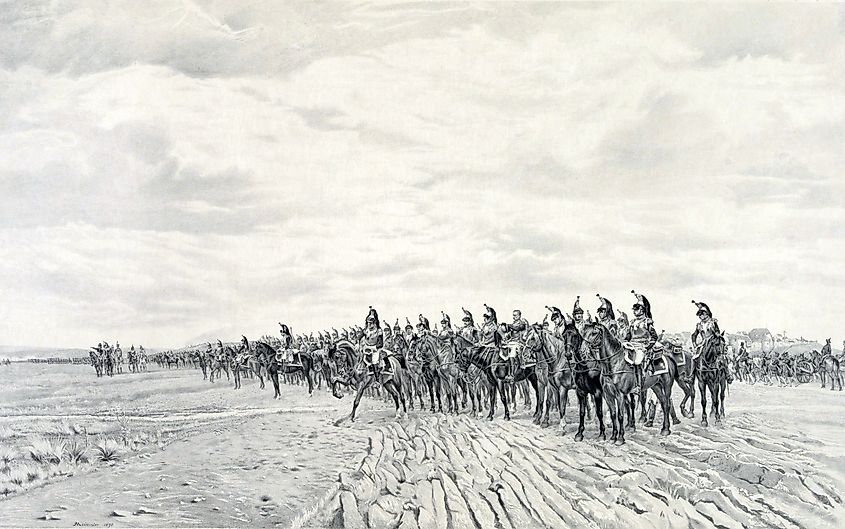
After lasting a thousand years, through splinter factions and civil wars, the Holy Roman Empire finally kneeled to Napoleon in 1806. In a strange order of hierarchy, Austrian forces and German vassals represented the primary body of the political group, which was the Holy Roman Empire. Therefore, when these assembled at the Battle of Austerlitz and suffered defeat against Napoleon, the group decided to dissolve themselves to prevent Napoleon’s access to the accumulated power of their institutions. In 1810, following the War of the Fifth Coalition, Napoleon married his second wife, Marie Louise of Austria, the eldest daughter of the final emperor of the Holy Roman Empire, Francis II.
Conclusion
Napoleon Bonaparte is a double-edged sword. Without him, France may have ceased to exist; and with him, France was in shambles and the momentum of the French Revolution was turned on its head. It is difficult to decide if he was a hero or a tyrant, but these 13 feats prove that, regardless of his morality, he will never be forgotten.
